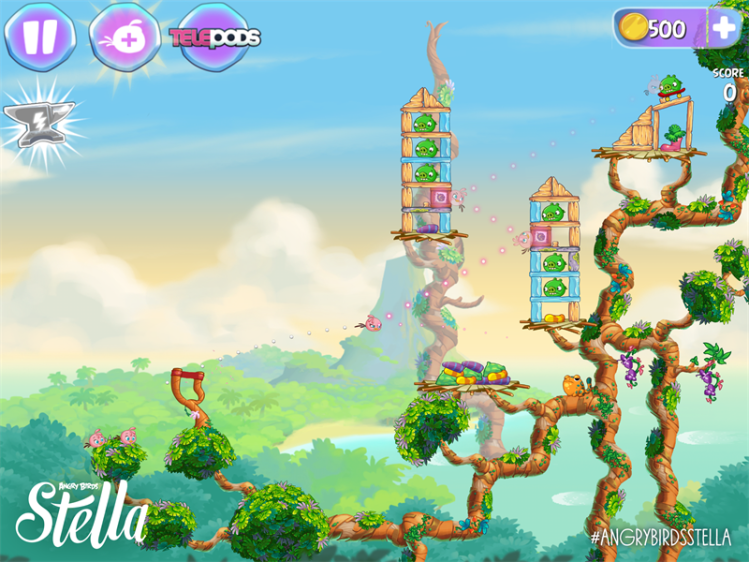Like the Canadian goose, Rovio’s Angry Birds are making a big move to a more hospitable region.
Developer Rovio Entertainment revealed today that it is partnering with megaconglomerate Alibaba and the broadcast company Shanghai Media Group to introduce Angry Birds: Stella in China. Today, the game will start appearing throughout various segments on the Chinese equivalent of American Idol, which the Shanghai Media Group runs. Alibaba will distribute the physics puzzler exclusively through its Android app stores and platforms. The Chinese mobile gaming industry is on pace to grow to $2.9 billion this year.
“Rovio is delighted to partner with Alibaba Group and Shanghai Media Group,” Rovio chief commercial officer Pekka Rantala said. “China is a key strategic market for Rovio, and Alibaba is the largest online and mobile e-commerce company in China. Angry Birds has been downloaded over 2 billion times. Working with Alibaba and Chinese Idols allows us to reach millions of new fans in China. We have a strong fan base in China. Combining our strengths will allow us to get even closer to our fans.”
China is a complicated market — especially for Android. While Rovio has a presence in the country on iOS through Apple’s App Store, Google’s Play market is nearly impossible for Chinese customers to access. But it doesn’t even matter if everyone in China used the official Android market because Google blocks any game that has in-app purchases from Chinese devices. This is due to regulations. Apple was able to get around this by making a deal with Chinese Mobile in which that company processes the payments.
Mobile developer or publisher?
Learn how successful apps make more money with fewer ads.
So China instead has several dozen different Android app distributors with a few, like Alibaba and Tencent, that make up the majority of all downloads. It’s incredibly difficult for Western developers — accustomed to the easy Google Play market — to navigate the labyrinthine Chinese Android business.
Some companies, like Spellgun, are popping up to help Android developers get into China, but Rovio decided to just go directly to the source. It’s likely that other Western developers looking to enter the lucrative market will do the same thing.
VentureBeat's mission is to be a digital town square for technical decision-makers to gain knowledge about transformative enterprise technology and transact. Learn More

